While the Lunar New Year is most commonly associated with the global Chinese community, the holiday is an important time of year for several other Asian cultures, which have their own unique dishes and variations on Chinese cuisine.
Many of those foods feature flavours ranging from bright and tangy, to warm and brothy — a palette reflecting the diversity of southeast Asia, with each meal united by common themes of good luck, prosperity and family.
Lunar New Year celebrations mark the end of the lunar calendar. Unlike the Western calendar, which stems from the Earth's rotation around the sun, the lunar calendar follows the moon's orbit of Earth.
It's one of the most important holidays of the year for nearly 1.8 million Canadians of Chinese heritage, many of whom live in greater Vancouver and Toronto.
While families normally kick off the year with elaborate meals, gifts of money and wishes of good fortune, this year's celebrations will be much quieter and smaller for those in Metro Vancouver's Asian communities.
Many will be celebrating at home with their immediate families, which is where we had chefs of Singaporean, Vietnamese and Korean heritage share their favourite new year foods and why they mean so much during a Lunar New Year like no other.
Singapore: yusheng (raw fish salad)
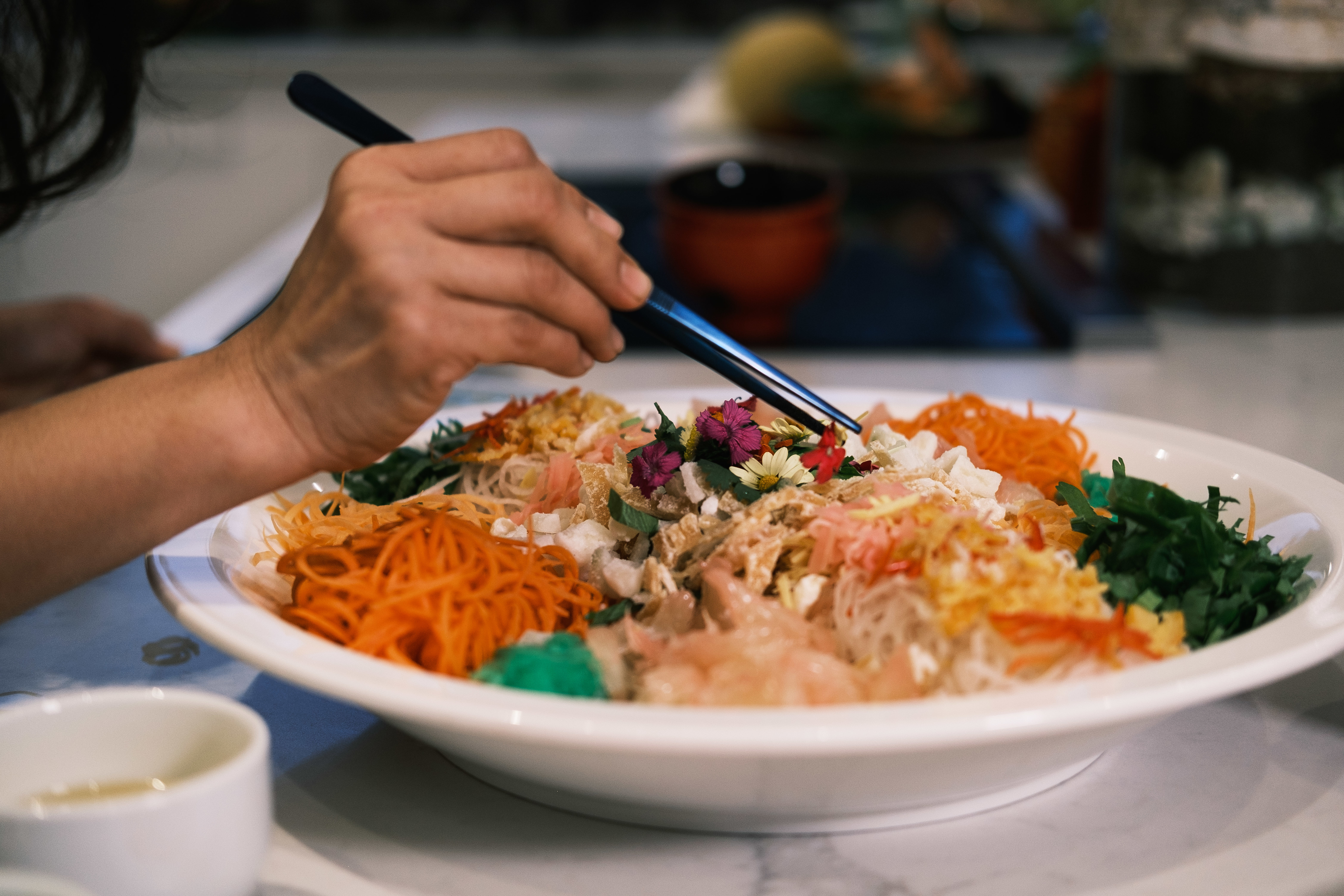
Yusheng, also known as prosperity toss salad, is a colourful dish with its origins in the restaurants of Singapore.
It is usually eaten as the first dish of a new year dinner and is tossed in a theatrical fashion — something chef Regina Lee remembers doing as a child.
"You basically stand together with the long chopsticks and toss the salad," she said.
"You say your wishes very loudly because if you say it loudly … and the higher you toss it, the greater the chances for you to get your wishes [to] come true."
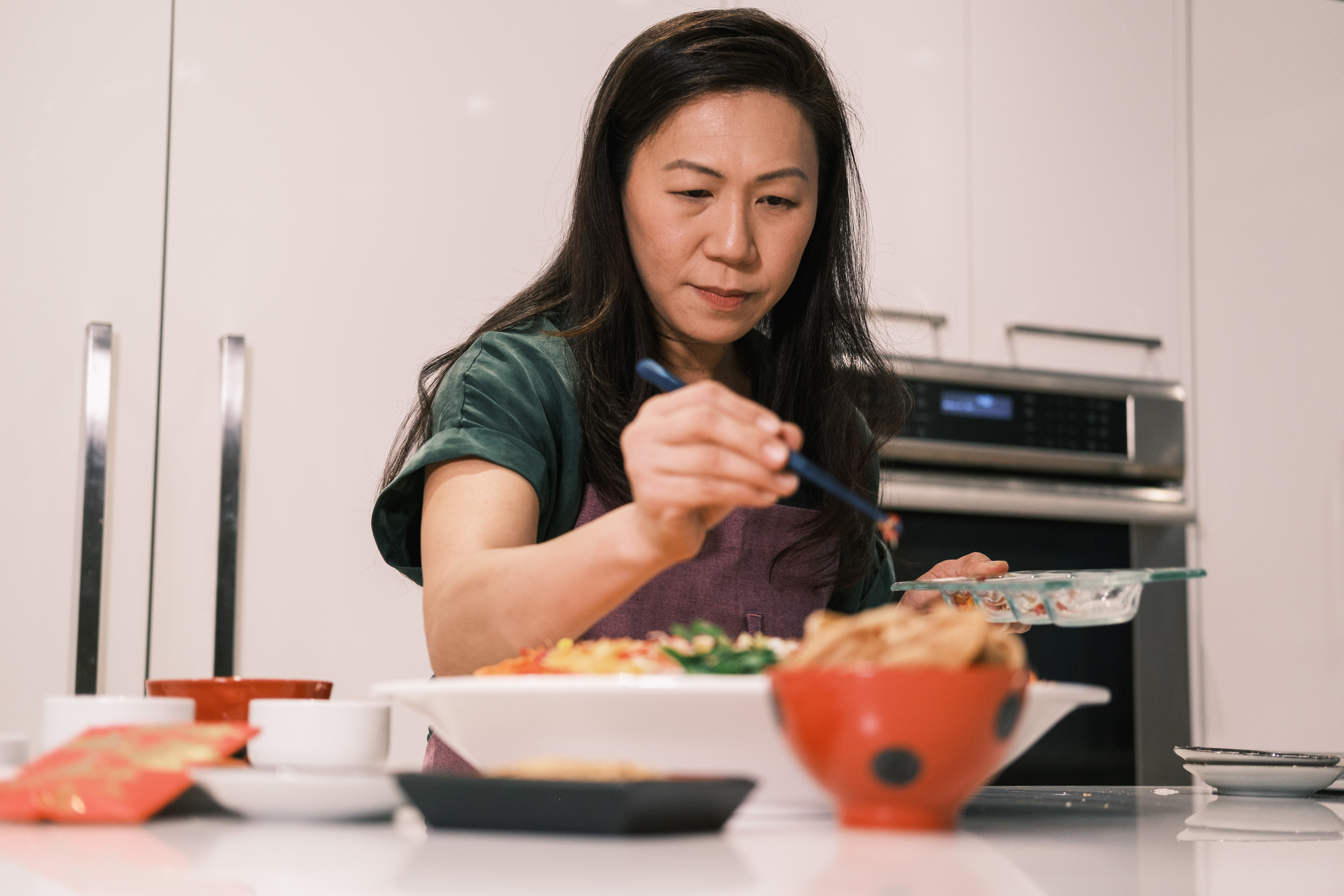
The salad's bright and refreshing flavours — Lee prepares hers with fresh, crunchy vegetables, candied sugars and pomelo — work in conjunction with the meaning behind each ingredient.
Shredded carrots and white radish symbolize good luck and prosperity in business; the raw fish and fried wonton skins symbolize wealth and abundance; oil represents the hope for business transactions to go smoothly and the plum sauce represents the sweet and loving relationships with family members.
While Lee won't be able to celebrate with a large group of people at a restaurant table this year, she hopes to prepare a smaller version of the salad for her family at her home in West Vancouver.
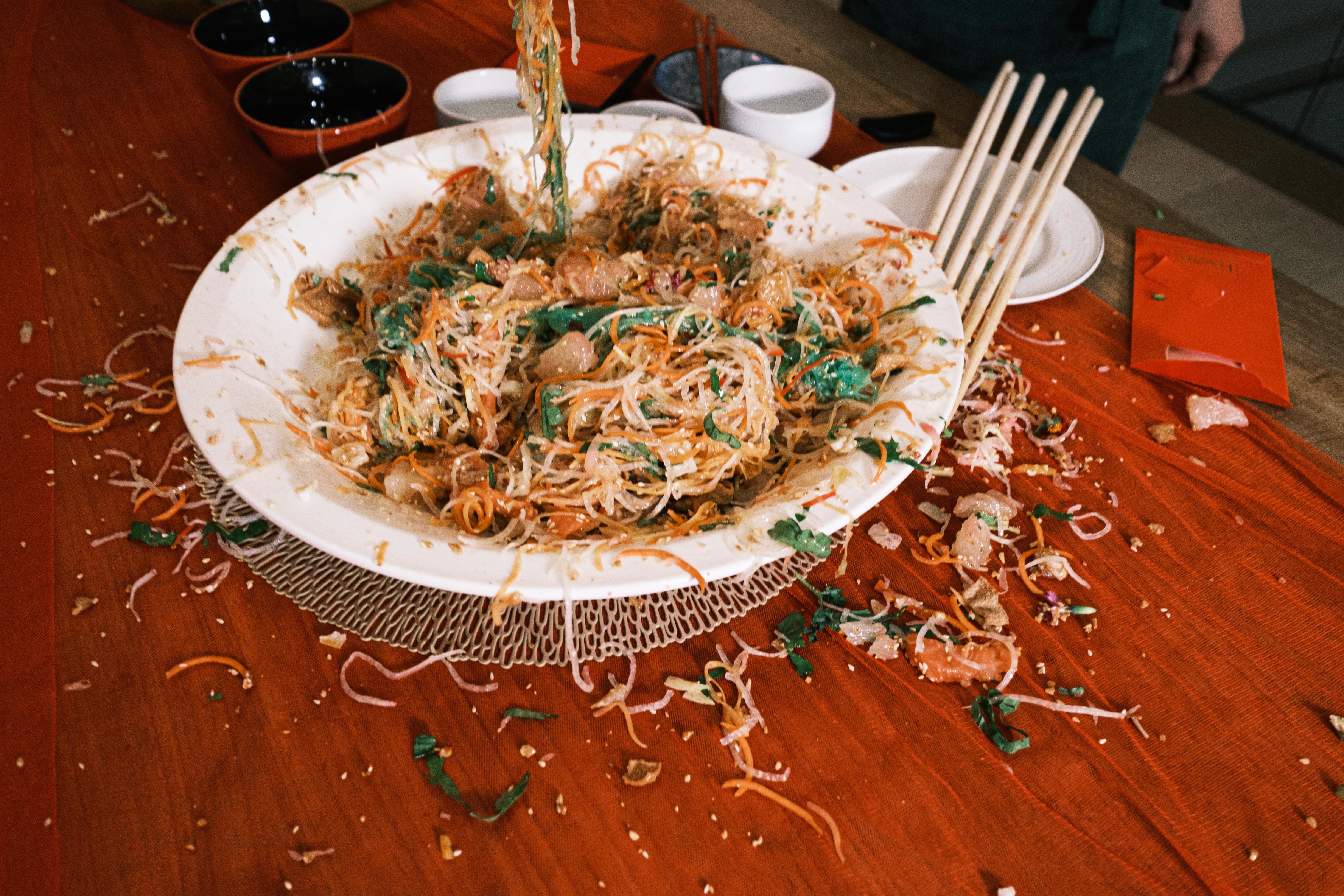
"I've still got family back in Singapore, and we would have this every year," she said.
"By doing this salad, I remember all the nice memories and also have my way of remembering the cultures and hopefully to pass this on to my children."
Vietnam: khồ qua, xôi gấc (Bitter melon, sticky rice)
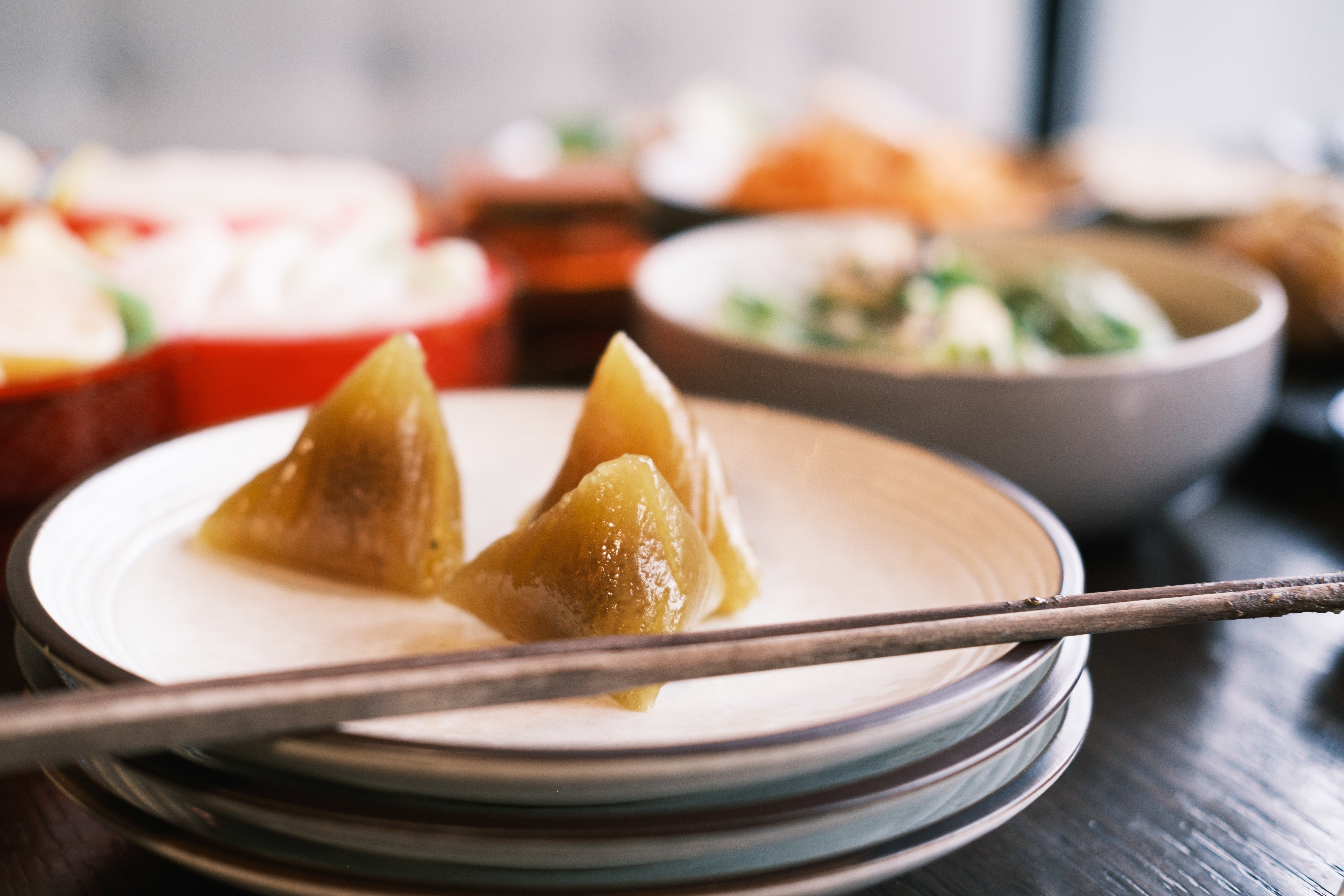
In Chi Le's home, a dish of khồ qua (stuffed bitter melon) is eaten at the start of the new year meal to symbolize moving beyond the most bitter parts of the past year.
The Vancouver chef, whose Chi Vegan restaurant specializes in plant-based Vietnamese dishes, makes hers with marinated tofu, but the traditional version of the dish is often stuffed with pork.
Other side dishes include either bánh tét, sticky-rice cakes wrapped in banana leaves; bánh ít lá chuối, sticky-rice triangles; and an orange-coloured sticky rice called xôi gấc, representing luck in Vietnamese culture.
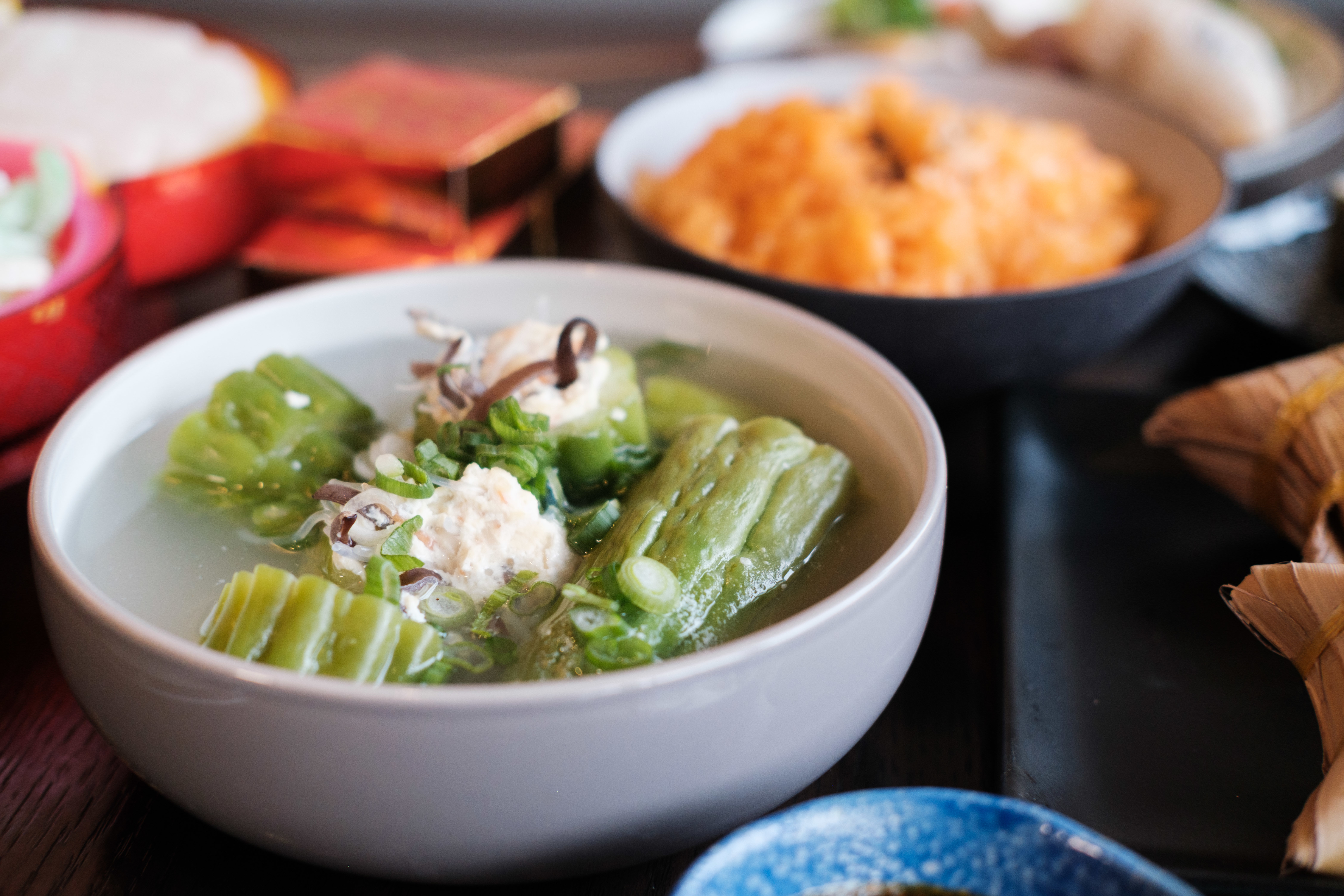
The stickiness of the rice is also meant to symbolize the value of relationships and the family sticking together — something Le wishes she could do this year.
"The COVID time [is] making it harder, because … my son, he's in California, he usually flies back home for the new year for a week," she said.
"This year, because of the quarantine … we will stay where we are."
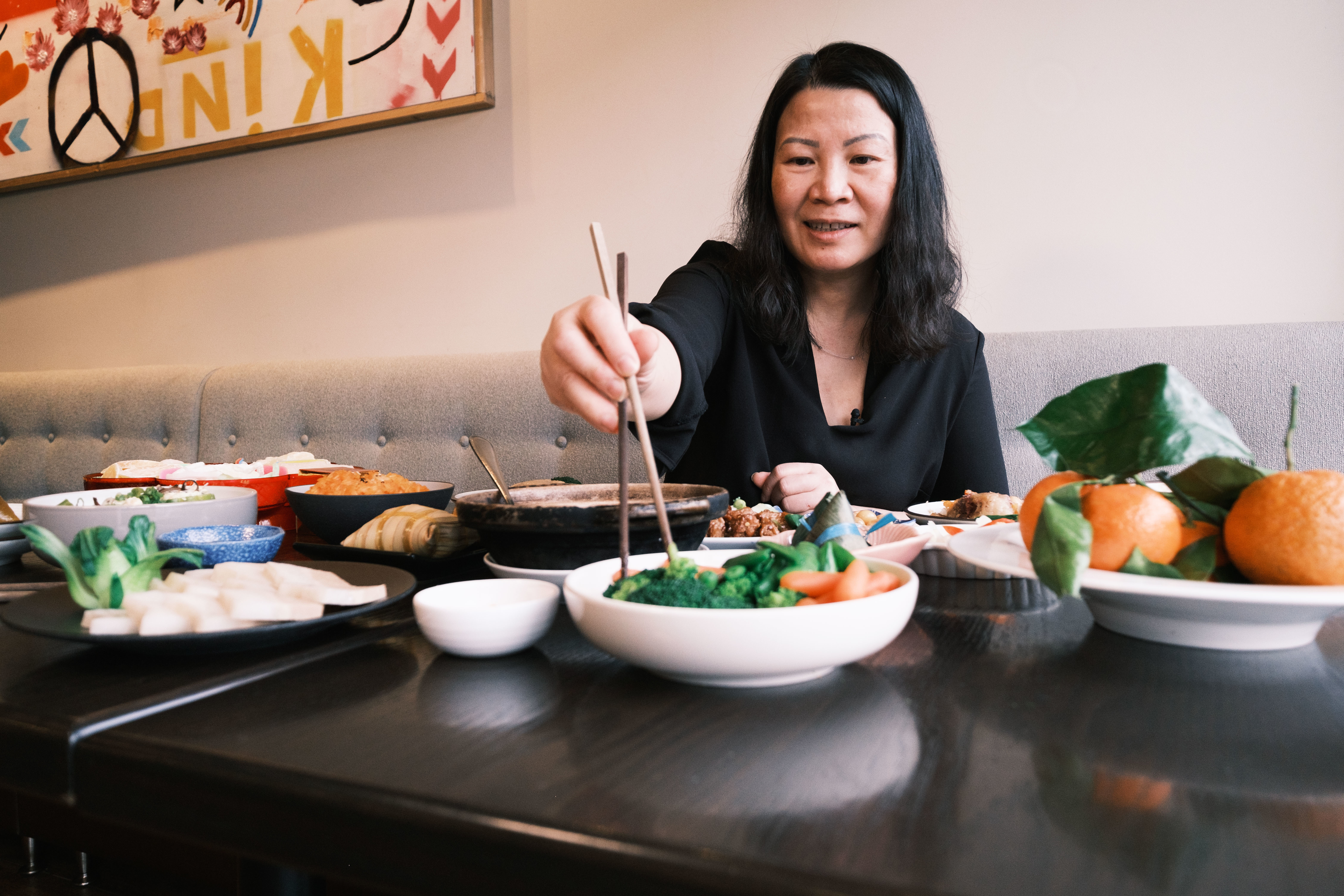
South Korea: duk guk (rice cake soup)
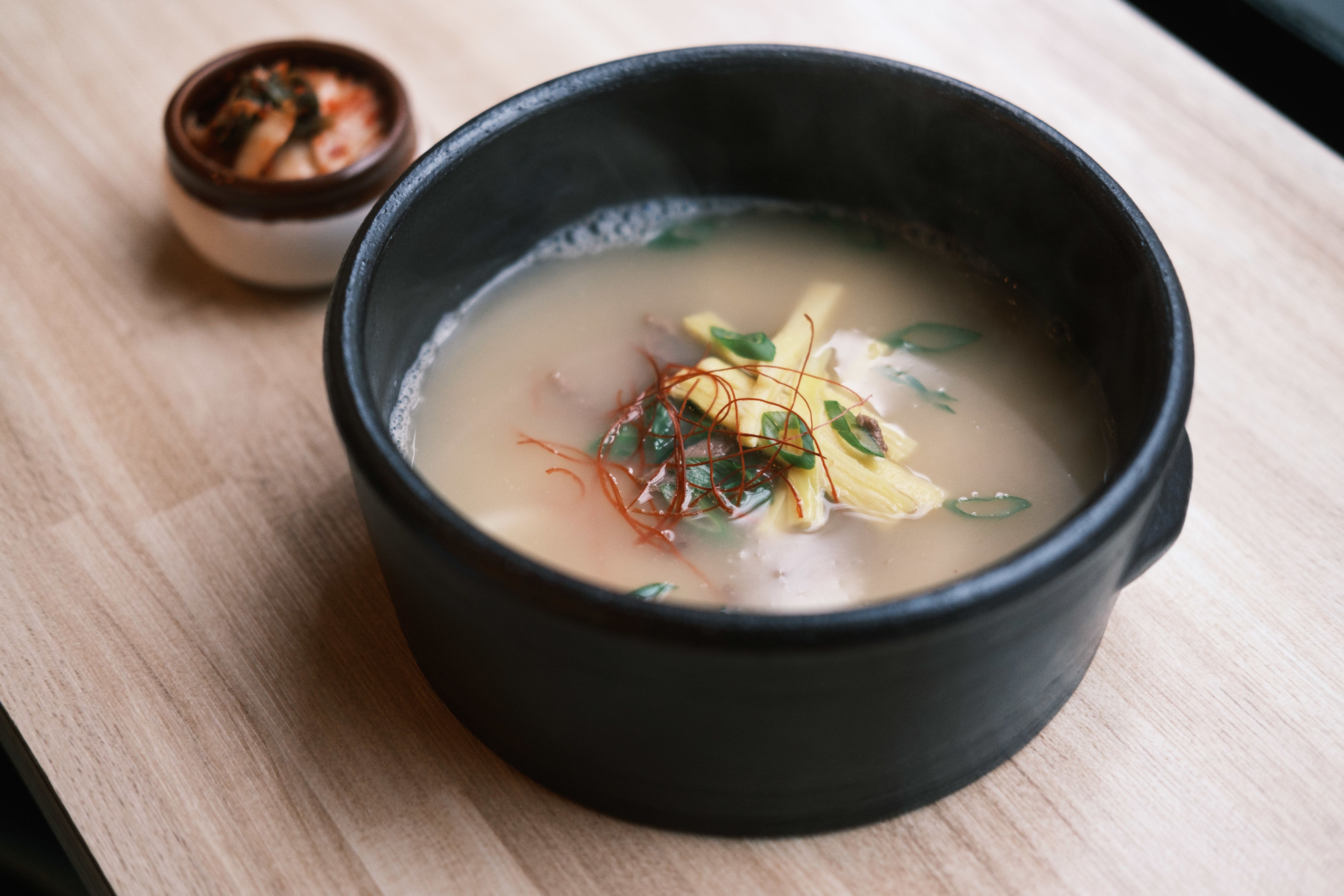
Chef Eric Lee of Millsam Tacorea and Damso Korean Restaurant in Vancouver grew up eating dduk guk, a beef broth-based soup with coin-shaped rice cakes to mark the start of the new year.
For Koreans, the white broth and white rice cakes represent a fresh, blank start to the new year.
The coin-like shape of the rice cakes also represents the hope that the year will be a prosperous one.
Lee says the soup has a simple brothy flavour with chewy texture from the rice cakes.
In Korean culture, it's believed you won't grow a year older until you eat the dish on new year's day.
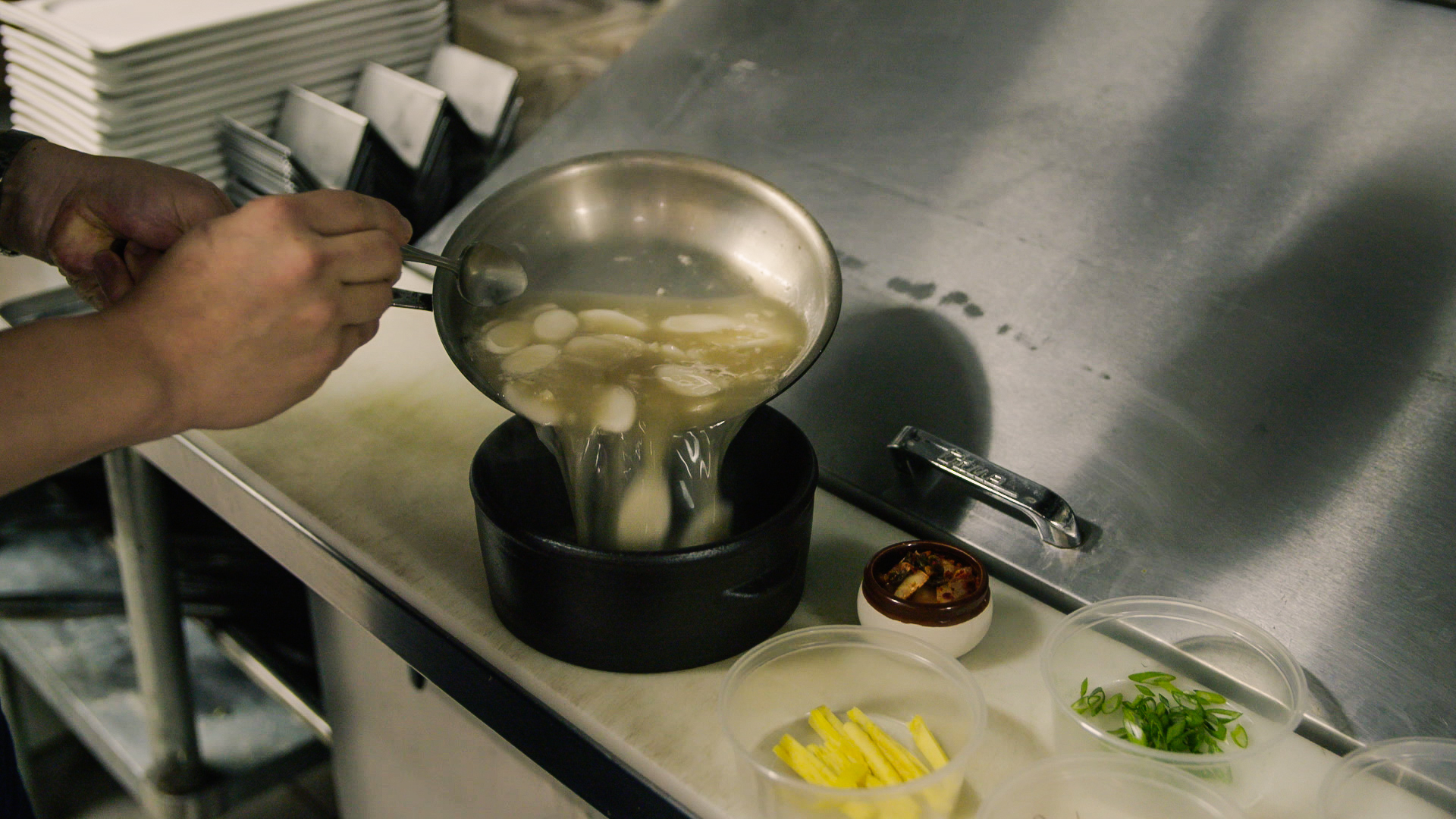
"It's something you have to eat on the new year," said Lee. "There's an old saying [where] if you don't eat it, you don't get old. You don't get aged," he said with a laugh.
As for Lee's personal new year's wish, he is hoping the promise of money the rice cakes claim to bring will come true for his business, which has been in a rough patch since the start of the pandemic.

"I want to get rich because everybody got poorer last year because COVID-19 happened," he said.
"I hope everything gets back to normal, hopefully, when springtime comes and [a] vaccine rolls out. That's what I am hoping for. That's what my family is hoping for. That's [what] my staff are hoping for."
